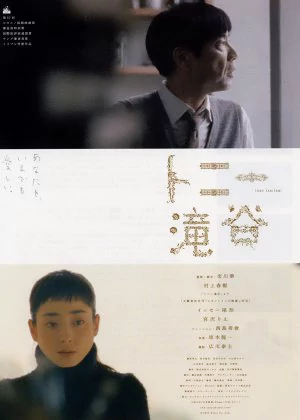Tony Takitani

The mid 00s were a golden time for Japanese directors. Talent combined with a little luck showed them the way to international recognition. When Jun Ichikawa released Tony Takitani [Toni Takitani], that's exactly what was bound to happen. At that time Ichikawa was already a veteran director, but because of the international buzz he finally got the attention he deserved. I watched the film again and the praise Ichikawa received was well-deserved, after all these years Tony Takitani is still a little gem.
![screen capture of Tony Takitani [Toni Takitani]](/thumbs/style/site/1200xauto/tony-takitani-1.webp)
Tony Takitani is an adaptation of an Haruki Murakami short story, which definitely helped to generate the initial hype. Ichikawa didn't just translate Murakami's story to film though, instead he tried to adapt the reading experience itself to film. Through intricate play with voice overs and smart styling choices you don't even have to be aware of the source material to get a solid literary vibe from this film. Ichikawa isn't the first film director to attempt this, but Tony Takitani is definitely one of the more worthwhile endeavors.
The film isn't just a book come to life on screen though, it also manages to fully embody its main character. Tony has somewhat of a bland, detached and subdued personality, going through life without any clear ups and/or down. The film's styling reflects that by keeping the camerawork sleek, controlled and functional, the soundtrack extremely minimal and by desaturating any bright colors to the point where almost everything radiates that same grey, murky feeling. Emotional triggers are toned down as much as possible.
Tony had a pretty rough upbringing. His mom died soon after he'd been born, his dad was mostly away from home and his English-sounding name alienated him from people around him. So he grew up mostly by himself, only interacting with a hired help who made him dinner once a day. When he was finally old enough to cook for himself, he told her she wasn't needed anymore and that was that. Tony has a firm grip on his life, until one day a woman walks in and turns everything upside down. He is smitten with her, but isn't quite used to the company of others.
![screen capture of Tony Takitani [Toni Takitani]](/thumbs/style/site/1200xauto/tony-takitani-2.webp)
The styling of the film is absolutely meticulous. Of course there was already a close match with Ichikawa aesthetic sensibilities, but he really perfected them to create a very cold, controlled but dignified and solemn atmosphere. The camera work is slow, angular and inch-perfect, colors are muted and dulled to mimic the way Tony experiences the world around him. Even the clothing is minimal and colorless. That said, the film never looks drab or boring as the hand of Ichikawa can be felt in every little detail.
The soundtrack is similarly minimalistic, though only in composition. The music itself is actually quite present and there are only a few moments without anything playing in the background. Luckily the score of Ryuichi Sakamoto is subtle enough, so it doesn't become too overbearing. It's not a very original score, mostly dominated by sweet and soothing piano tunes, but it fits the film like a glove and it does play a large part in setting the mood, so job well done.
Issei Ogata and Rie Miyazawa (in an impressive double role) manage to blend in very well. Their performances are modest and understated, very much in line with the rest of the film. It's not all that uncommon in Japanese dramas, which tend to be less emotional in general, but even by that measure Tony Takitani takes it one step further. Also kudos to Hidetoshi Nishijima, while he doesn't appear on screen his narration is functional yet compassionate, pretty much the only counterbalance to the otherwise stark presentation.
![screen capture of Tony Takitani [Toni Takitani]](/thumbs/style/site/1200xauto/tony-takitani-3.webp)
Trying to emulate the literary experience with film is a pretty big risk as it is sure to alienate part of the audience. Ichikawa tramples on quite a few unwritten rules of cinema (like the popular "show, don't tell" for example), though he does it with style and conviction. Add to that the sleek and almost emotionless exterior of the film and it's obvious Tony Takitani was never going to be the most accessible of films. That said, if you feel rules are made to be broken, this shouldn't pose too much of a hurdle.
Tony Takitani is one of the finest exercises in balancing style and content I've ever seen. Form, narrative and characters are really one here and feed off each other the entire time. Ichikawa was smart to keep the film relatively short, so the film never gets stale or boring. Fans of Japanese drama cinema may have an easier time adjusting to the finer points of the film, but Tony Takitani has enough class and flair to entertain an international (arthouse) audience. Well recommended if you're looking for something small and intimate.